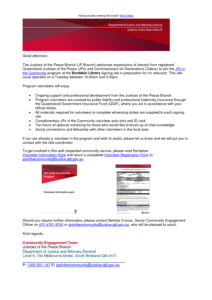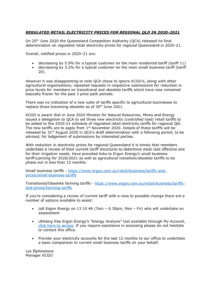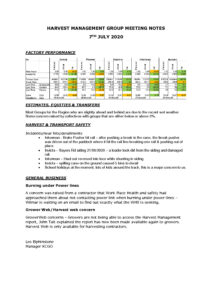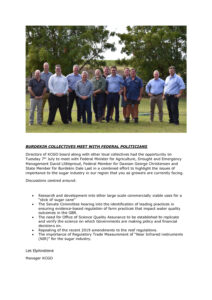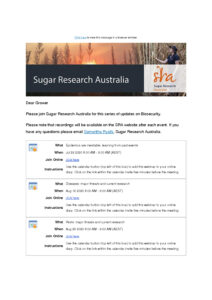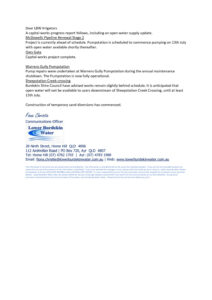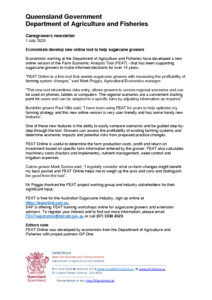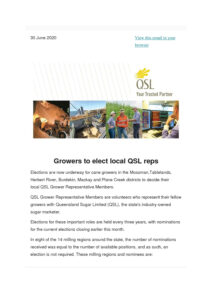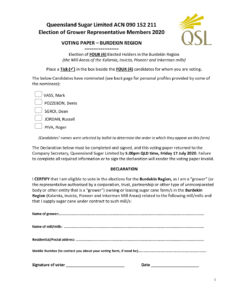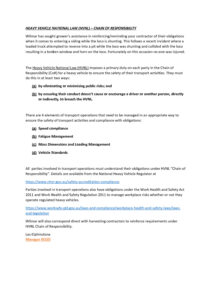Category: Industry Information
Miscellaneous information
REGULATED RETAIL ELECTRICITY PRICES FOR REGIONAL QLD IN 2020-2021
HARVEST MANAGEMENT GROUP MEETING NOTES
BURDEKIN COLLECTIVES MEET WITH POLITICIANS
SRA – Biosecurity Webinars
Australian Government – Energy Efficient Communities Program – Small Business
Australian Government – Energy Efficient Communities Program – Small Business
The Australian Government has announced availability of Small Business Grants up to $20,000 under its Energy Efficient Communities Program. Grants can be used for equipment and component improvements, energy audits, feasibility studies and/or energy use.
Additional information can be sourced by Click Here
Les Elphinstone
Manager KCGO
LBW Irrigators Notice
QLD Government – DAF – Newsletter
QSL Grower Representative Member Election
QSL Grower Representative Member Election – Burdekin Region
Due to the number of nominations tendered to fill the four Burdekin representative positions for the coming 3 year term, QSL is required to undertake a vote.
Growers can download 2020 Voting Pack by link included in QSL media release. Have also taken the opportunity of attaching a copy of voting paper or alternatively hard copies will also be available through KCGO office.
Fully completed and signed voting papers must be lodged with QSL Company Secretary by no later than 5.00pm, Friday 17th July 2020.
Your board director, Mr Denis Pozzebon, is one of the nominees and we encourage members to show their support when casting your vote.
Any growers who require assistance please do not hesitate to contact this office.
Les Elphinstone
Manager KCGO
QSL Media Release – Grower Member Elections
(click to view full size)
QSL Voting Form & Information
(click to view full size)
